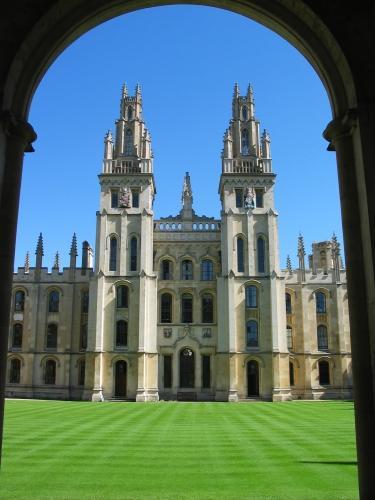
All Souls College, Oxford
The Wall Street Journal recently ran an article on a small but growing number of U.S. students applying to British universities – not as study abroad but as their home institution. The article is here. U.S. high school and transfer students are looking at colleges outside the country as the price of an American college education continues to skyrocket and as job opportunities here become less tied to an American degree (two trends at work here: more recognition by U.S. employers of degrees earned overseas and more Americans seeking jobs overseas as opportunities dry up here – see article here). The WSJ notes:
And it is not just the U.K. that is attracting the attention of U.S. students and their parents. Earlier this year I wrote a post about “reverse brain drain” and included a section on American students applying to Canadian universities:
[a]s education and career advancement opportunities continue to improve in other countries, U.S. universities might very well find that they have to compete to retain American students. In other words, over the next twenty years it might not be so uncommon for U.S. students to apply to graduate school in other countries, and in large numbers. And then maybe undergraduates will follow. Already, more U.S students are opting for college in Canada, according to the Philadelphia Inquirer: “During the last decade, the number of American students at Canadian universities has more than doubled, says the Association of Universities and Colleges of Canada, to 8,200 in 2007-08, up from 3,312 a decade ago.”
But the days of low tuition fees in the U.K. and Canada might not last. Canadian tuition is on the rise (see here) and as I write this Britain is experiencing a nationwide protest by students against kikes in tuition (see here).